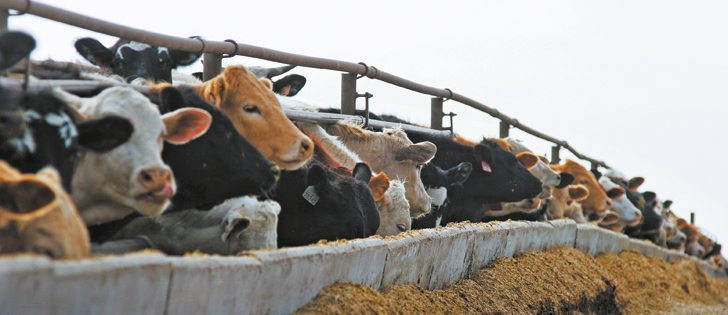A $100 million option | Producers, feeders hopeful the Brooks, Alta., plant will reopen soon
Many cattle producers are expressing relief at an agreement between international cattle processing giant JBS USA and the beleaguered Alberta-based XL Foods Inc.
The Oct. 17 agreement saw JBS immediately take over management of the XL Foods packing plant at Brooks, Alta., which has been closed since Sept. 27 after E. coli was discovered in some of its products.
It gives JBS an exclusive option to buy various XL Foods holdings for $50 million in cash and $50 million in JBS shares.
With about 20,000 cattle ready for slaughter each week, the production chain was backed up and prices dropped in all sectors of the industry.
Read Also

Agritechnica Day 3: Hybrid drive for a combine, data standards keep up to tech change and tractors of the year
Agritechnica 2025 Day 3: Hybrid drive for a combine, data standards keep up to tech change and tractors of the year.
Producers and feeders are hopeful the Brooks plant, one of the largest in Canada with a kill capacity of 4,000 head per day, will reopen soon.
“I think it’s very positive,” said Alberta Beef Producers chair Doug Sawyer about the deal.
“From an industry standpoint we desperately need that plant running. This whole shut down couldn’t have happened at a worse time for the cow-calf and the feeder cattle industry. This is our fall run. All these cattle are coming off grass, and left us with a huge amount of uncertainty.”
Canadian Cattlemen’s Association president Martin Unrau also viewed the JBS entry into Canada as a positive development.
“I think it’s a step forward from where we were two or three days ago, that’s for sure,” he said Oct. 19.
“We see the opportunity that JBS may present and that to us is exciting, because they’re really good at what they do and these guys are some of the lowest cost processors in the world.”
Unrau said the CCA was in touch with JBS after the CFIA revoked the operating licence at the Brooks XL plant, halting operations. The CCA was seeking slaughter options to avoid a backlog of fat cattle.
JBS, which has processing operations on several continents, has been eyeing Canada for at least 10 years, said Unrau, and its first entry here could increase domestic volume.
“I’ll be honest, we’ve worried about infrastructure crashing for the last couple years because of our numbers. By infrastructure, I mean feedlots and trucking companies and processing and slaughter.
“ I think we need more cattle and this company I think will help us move forward.”
The proposed selling price for XL Foods’ holdings, at $45 million less than Nilsson Brothers paid Tyson for the plant in 2009, raised his eyebrows.
Unrau said he thinks it is a bargain considering the value of the Brooks plant, feedlot, farmland and another plant site in southwest Calgary.
Former CCA president and feedlot operator Brad Wildeman said the JBS purchase plan is a sign the company will keep the plant open. Some have suggested it will buy the plant and close it.
“100 million dollars is a pretty big price tag to pay for that, I would think,” said Wildeman.
He speculated the price could have been even cheaper had JBS waited, but it likely saw a need for quick action to retain the plant’s 2,200 employees.
Unrau is also confident JBS will retain the plant if the deal goes ahead.
“I don’t think they’ll close it down. I think the reason that they’re managing it with an option to buy is they just want to stick their toe in the water and see how this is going to work out. I think they are going to be pleasantly surprised.”
Brent Chaffee, chair of the Alberta Cattle Feeders Association, said Western Canada has plenty of cattle and it is cheaper to ship beef than live animals.
If JBS does plan to close a plant, Chaffee suggested one of its U.S. plants would be a more likely target because of slaughter overcapacity there.
As of Oct. 22, no date had been set for reopening the Brooks plant. It is dependent on CFIA decisions regarding food safety protocols.
With JBS in charge, it may open sooner than it would have under XL management, said Wildeman.
“It was apparent to me that it was going to be very difficult, if not impossible, for the present management to continue to operate that plant, given everything that happened, unfortunately.”
One other worry is that the CFIA will impose conditions on the plant that will affect its profitability. Wildeman said requirements imposed after the BSE crisis, for removal of specified risk material, made Canadian plants less competitive than their U.S. counterparts.
“I don’t want that same mistake to be made in this case simply to try and gain a few political points.”
Neil Peacock, cattle producer and member of the National Farmers Union, said the potential JBS deal will mean loss of yet another piece of Canadian packer capacity.
Between Cargill and JBS, about 84 percent of domestic capacity would be foreign-owned.
He said the XL situation that threatened human health should serve as a wake-up call for governments to review food policies. A plan for smaller and more numerous slaughter plants, with at least one in every province, would better serve Canadians.
















